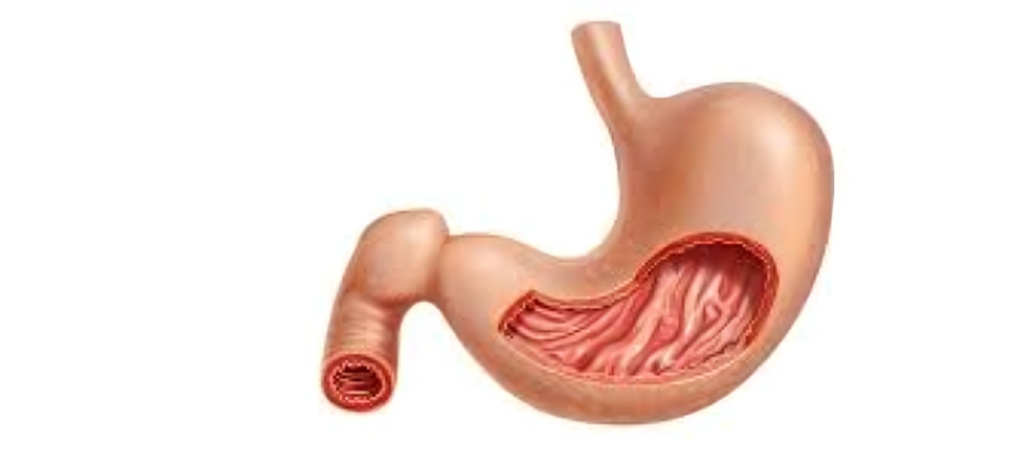The stomach is a vital organ in the digestive system, responsible for breaking down food and preparing it for further digestion and absorption. In this article, we will delve into the anatomy, function, and common conditions related to the stomach, shedding light on its importance in maintaining overall health and well-being.Best Hepatologist in Rohini Sector 7
To Know More About It Please Click Here
Anatomy of the Stomach
The stomach is a muscular organ located in the upper abdomen, between the esophagus and the small intestine. It plays a central role in digestion and has the following anatomical features:
- Gastric Wall Layers: The stomach has four main layers—mucosa, submucosa, muscularis, and serosa—each with specific functions in digestion and protection.
- Gastric Regions: The stomach is divided into different regions, including the cardia (near the esophagus), fundus (upper part), body (main portion), and pylorus (lower part leading to the small intestine).
- Gastric Secretions: Specialized cells in the stomach lining produce gastric juices containing hydrochloric acid, enzymes (like pepsin), and mucus, which aid in digestion.
Functions of the Stomach Best Hepatologist in Rohini Sector 7
The primary functions of the stomach include:
- Storage: The stomach temporarily stores ingested food and regulates its release into the small intestine for further digestion.
- Mechanical Digestion: Muscular contractions (peristalsis) in the stomach churn and mix food with gastric juices, breaking it down into smaller particles.
- Chemical Digestion: Gastric juices contain enzymes and acids that break down proteins, fats, and carbohydrates into simpler forms for absorption.
- Killing Pathogens: The acidic environment of the stomach helps destroy harmful bacteria and pathogens present in ingested food.
Common Stomach Conditions
Several conditions can affect the stomach, leading to digestive disturbances and discomfort:
- Gastritis: Inflammation of the stomach lining, often caused by infection (e.g., H. pylori bacteria), excessive alcohol consumption, or certain medications.
- Peptic Ulcers: Open sores or ulcers in the lining of the stomach (gastric ulcer) or duodenum (duodenal ulcer) due to erosion by stomach acid and digestive enzymes.
- Gastroesophageal Reflux Disease (GERD): Chronic reflux of stomach acid into the esophagus, causing heartburn, regurgitation, and chest pain.
- Gastric Cancer: Malignant tumors affecting the stomach lining, associated with risk factors such as H. pylori infection, smoking, and genetic predisposition.
- Gastroparesis: Delayed gastric emptying due to nerve damage, leading to symptoms like nausea, bloating, and early satiety.
Diagnostic Tests for Stomach Disorders
To diagnose stomach conditions, healthcare providers may recommend:
- Endoscopy: A procedure using a flexible tube with a camera (endoscope) to visualize the inside of the stomach and obtain tissue samples for biopsy.
- X-rays or CT Scans: Imaging studies to assess the structure and function of the stomach and surrounding organs.
- Laboratory Tests: Blood tests to check for infection (e.g., H. pylori), assess enzyme levels, or detect markers of inflammation.
Maintaining Stomach Health
To promote stomach health and prevent digestive issues, consider the following tips:
- Eat a Balanced Diet: Include fiber-rich foods, fruits, vegetables, and lean proteins while limiting spicy, fatty, and processed foods.
- Stay Hydrated: Drink plenty of water throughout the day to support digestion and maintain proper hydration.
- Manage Stress: Practice relaxation techniques like yoga, meditation, or deep breathing to reduce stress, which can exacerbate stomach issues.
- Avoid Smoking and Excessive Alcohol: Both smoking and heavy alcohol consumption can increase the risk of gastritis, ulcers, and stomach cancer.
To Know More About It Please Click Here
The stomach is a vital organ that plays a crucial role in digestion and overall health. Understanding its anatomy, functions, and common conditions can empower individuals to make informed lifestyle choices and seek timely medical attention when necessary. By adopting a balanced diet, staying hydrated, managing stress, and avoiding harmful habits, we can support optimal stomach health and enjoy a better quality of life. If you experience persistent digestive symptoms or concerns related to your stomach, consult a healthcare professional for proper evaluation and personalized treatment recommendations.Best Hepatologist in Rohini Sector 7


